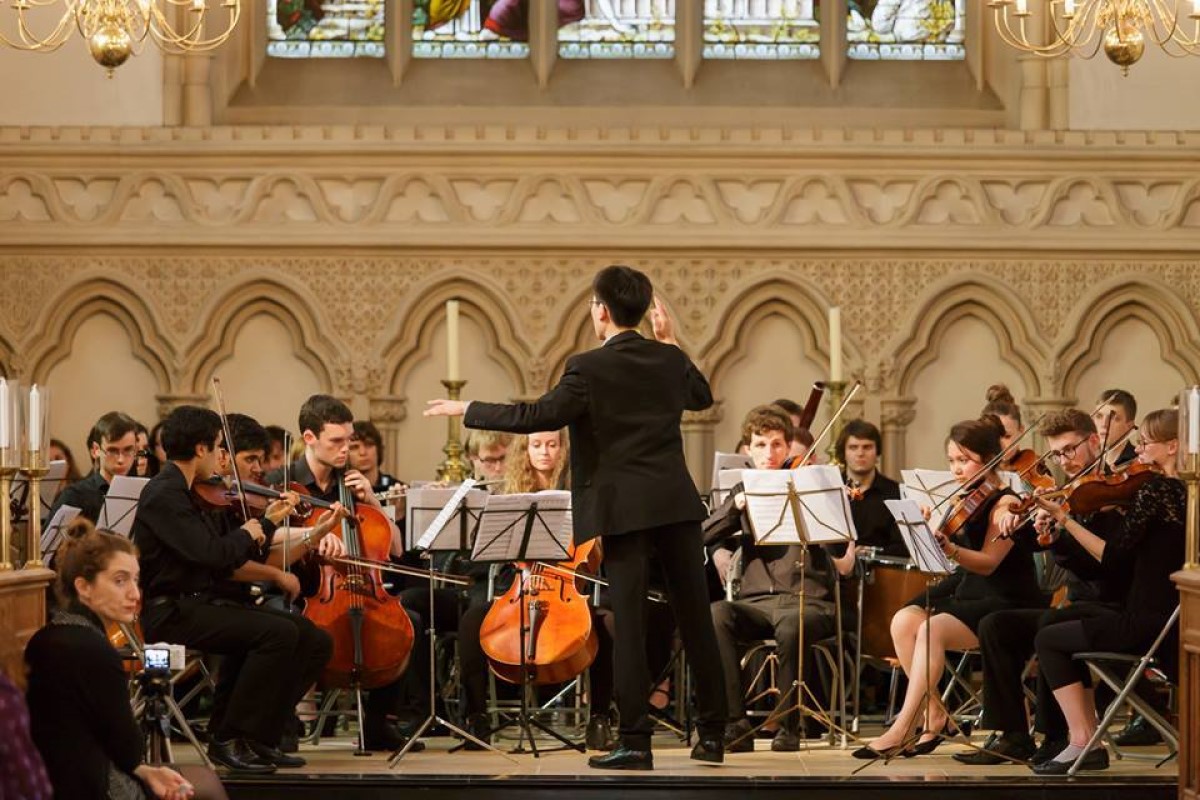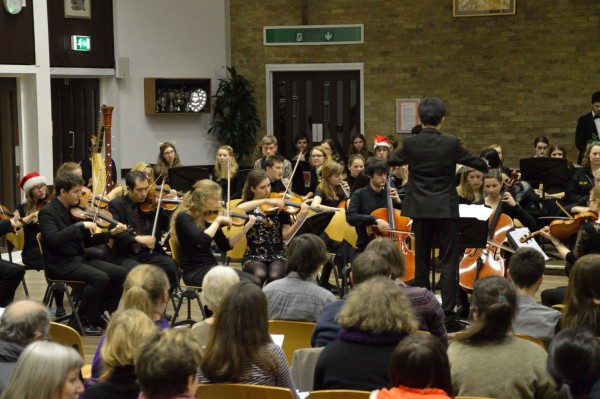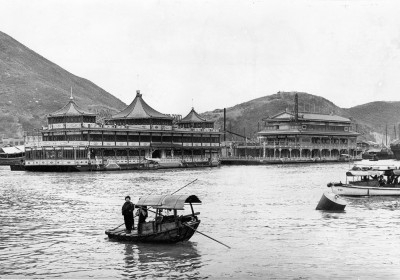
(翻譯內容以英文版本為準)
我常被人問到:「你玩甚麼樂器?」我的回答永遠是:「我是個鋼琴家、小號手和敲擊樂手,但現在我主要是個指揮家。」
人們聽到我這樣回答,通常會呈現一副難以置信卻又非常佩服的樣子,驚嘆道:「嘩!太厲害了,你的音樂造詣一定很高!」
老實說,起初我不懂人們為甚麼有這種反應,卻同時覺得很好笑,但當我一次又一次看到人們這樣的反應,我漸漸感到厭倦了。現在讓我徹底澄清這回事:指揮家並不是特別優越的音樂家,地位亦不比其他人超然,所以絕對沒有理由因為某人是指揮家而感到驚訝。說到底,指揮家就跟其他樂團樂手一樣,不管是小提琴手、長笛手、豎琴手、定音鼓手、色士風手,抑或其他樂器演奏者,他們都是音樂家、藝術家和樂團的一分子。
有個關於指揮家的笑話百說不厭。交響樂團剛出現的時候只有管樂,當中有些人能力太差,於是給了他們一些綁著弦線的大木頭,而變成了「弦樂手」;有些人可悲得連這樣都做不好,於是樂團經理給了他們兩根棍子,讓他們想怎樣打就怎樣打,這些人變成了「敲擊樂手」;最後,其中一個敲擊樂手沒用得打任何東西都不準確,所以樂手們把他其中一根棍子拿走,並叫他站在所有人面前…… 這就是第一個指揮家的誕生。
當然,我絕對不是在暗示指揮家,就是整個樂團中最沒用的成員!我想說的是,指揮家就是團隊的一部分,而其他樂團樂手都是隊友。缺少人際交往技巧的指揮家永遠不會成功,他們不會得到樂手的尊重。
若有讀者覺得上述關於音樂範疇的説法難懂,且讓我舉一個足球世界的例子 —— 摩連奴。摩連奴無可否認是現代足球界最成功,且碩果纍纍的領隊之一,但他在曼聯執教的日子卻是動蕩不安。他公開批評自己的球員、抱怨得不到球會支持、挑釁傳媒和球證,一副儼如無敵的形象好像所有人理應要膜拜。這種態度如果是在 20 世紀中可能依然有用(事實上,傳奇指揮家卡拉揚正正就是這樣),但在現代卻絕對不是這回事。看看摩連奴最後怎樣:球員都不願為他出力,而他執教兩年半後亦被球會解僱。

樂團指揮家和足球隊領隊,似乎是兩個完全不同且不相關的職業,但卻需要一樣的特質 —— 團隊精神 —— 才會成功,我相信在社會上其他領導者的角色都是一樣。
指揮家依賴樂手的投入和信任,不論自己有多出色、有才能和成功,如果沒有音樂家為其演奏,就不會有任何音樂和演出。
當我在杜倫大學擁有自己第一個管弦樂團,當時的我只有 19 歲、絕不成熟,且是個完美主義者,不斷催逼和要求我的樂手做到最好。我很沒有耐性,經常向他們灌輸很多資訊;有時候,我會因為覺得自己是唯一一個對音樂有深刻理解的人而哀嘆。綵排時候的氣氛永遠很緊張,沒有任何人會笑或説笑話,而樂手都很害怕會犯錯。在第一個學期結束後,有過半樂手退出,他們投訴我的樂團儼然是個壓力鍋,並經常擔心會被責罵。這提醒了我,其實自己只是正在指揮一個大學的樂團,不是專業的。直到那時我才意識到,我和樂手之間的關係是建基於恐懼,而不是友誼和尊重。
通過這次慘痛的經驗,我在指揮劍橋大學其中一隊樂團時,採取另一套截然不同的方法。我明白樂手都是學業繁重的同學,他們都想在樂團練習時放鬆和玩得開心。我説了很多笑話,亦會與樂手愉快地聊天,甚至有時候透過展示自己跳舞有多爛來作為一個笑料。整個氣氛都是令人愉快和輕鬆的,所有人都在笑和真正地感到歡樂,而不是樂手發牢騷而我在抱怨。我意識到樂手需要的是鼓勵而不是被責罵。自此,我不再視自己(或其他指揮家)是優越或較高層次的音樂家,而是樂團的成員之一,一同與樂手演奏音樂。畢竟,當我仍然是個樂手的時候,我時常覺得指揮家是個沒有可見才能的白癡,因為他們不懂得玩任何樂器,才要揮舞一根棍子。
指揮家,和其他樂手一樣,只是樂團的一分子。好的指揮家一定會是個好的領導者和溝通者,他們勵志、和善、會給予幫助、幽默、鼓舞人心和明白事理。記得,只有樂手的存在才會有音樂出現,如果只有指揮家一個,則甚麼也沒有。
What’s so Cool being a Conductor?

‘What instruments do you play?’ is the question that I got asked all the time.
My answer has always been ‘I am a pianist, trumpeter and percussionist. But I am mainly a conductor now’.
Upon hearing my answer, people often displayed disbelief, looked mightily impressed and exclaimed ‘Wow! That’s so cool and you must be so good in music’.
If truth be told, I was at first amused and puzzled by their reactions. But as I received these responses again and again, I have become tired of them. Let me clarify this once and for all, conductors are not superior musicians; they are not above everyone else; and there is no reason to be amazed if you know that someone is a conductor. After all, a conductor, just like any other orchestral players – be it a violinist, a flautist, a harpist, a timpanist, a saxophonist or any other instrumentalist – is a musician, an artist and a team player.
There is a long-running joke about the conductor. When orchestras first came about, there were only wind instruments. Some of these people, however, were too incompetent, so they were given large pieces of wood with wires strapped around them. These people were known as the ‘strings’. Some were so pathetic that they couldn’t even do this so they were given two sticks and were told to hit whatever they wanted. These people became known as the ‘percussionists’. Finally, one of the percussionists was so useless and failed to hit anything accurately, so one of his sticks was taken away. He was then asked to stand in front of everybody. And that was the birth of the first conductor.
Well, I am certainly not implying that the conductor is the most incompetent member of an orchestra! What I am saying is, the conductor is part of a team, and the orchestral players are the teammates. A conductor would never succeed if he/she lacks interpersonal skills, does not have the respect of the players and believes that
he/she is all powerful just because of having the opportunity to wave a symbolic baton around and stand on a prestigious rostrum.
For readers that might find the above musical aspects confusing, let me give you an equivalent example in the football world – José Mourinho. Undoubtedly one of the most successful and decorated modern football managers, Mourinho’s reign at Manchester United was turbulent. He publicly criticised his players, moaned about a lack of support from his board, picked fights with the press and the match officials and deemed himself an invincible figure that deserved respect from everyone around him. This attitude would have been effective back in the mid-20th Century (and indeed, legendary conductor Herbert von Karajan was just like this) when autocracy was a key component in man management, but certainly not in modern times. And look at what happened to Mourinho eventually – his players were reluctant to play for him, and he was dismissed by the board after just two and a half years at the helm.
Conductors and football managers – seemingly two completely different and unrelated occupations – require the same attributes to succeed. And I am sure that this is the same for many other leadership roles in society. A conductor relies on the devotion and trust from the orchestral players. No matter how brilliant, talented and
successful a conductor is, there would be no music and no performances if there weren’t any musicians performing for him/her.
When I had my first orchestra at Durham University, I was young, immature and such a perfectionist who continuously pushed and demanded the best from my players. I was impatient, lectured them frequently and fed them so much information. On several occasions, I became exasperated and bemoaned why I was the only one who knew anything about the music. The rehearsal atmosphere was always tense; there were almost never any smiles or jokes going around; and the players were always afraid of making mistakes. After the first term, more than half of the orchestra’s players quitted, complaining that my orchestra was such a pressure cooker and that they were always worried of being scolded, before reminding me that I was conducting a university, and not a professional, orchestra. It was not until then that I realised the relationship between my players and I was built on fear, and not friendliness and respect.
Having learned from this painful experience, I adopted a completely different approach when I conducted my orchestra at the University of Cambridge. I fully appreciate that the players were all busy students and were keen to relax and have fun through playing in an orchestra. I made numerous jokes, chatted with the players
engagingly and sometimes even made a laughing stock of myself by showing what a terrible dancer I was.The atmosphere was jovial, light-hearted and delightful, and instead of the players grumbling and my complaining, everyone was laughing and genuinely jubilant. I realised that what the players needed was a slap on the back and not a slap in the face. Since then, I’ve never looked at myself (or any other conductor for that matter) as a superior or higher-ranked musician, but just a member of an orchestra that makes music with my players. After all, when I was a player, I often thought that the conductor was an idiot with no discernible talent, and that he/she had to resort to waving a stick because he/she couldn’t even play an instrument.
The conductor, just like the players, is only a member of an orchestra. A great conductor, ultimately, must be a great leader and communicator – inspirational, kind, supportive, humorous, encouraging and understanding. Remember, there’s only music when there are players. There’s nothing if there’s just a conductor.














